|
The population of Suhmata before 1948 was about 95% Muslim and 5% Christian.
That did not prevent a Christian from being chosen as village head, twice in the twentieth century, when a Christian
happened to be the most respected candidate.
We need to think about whose manipulation, what sinister motives, are behind the enmity that we are made to believe exists
between Muslims and Christians. Whose evil interests does this misrepresentation serve?
Water wells. [Arabic: Bir. Hebrew: Be'er].
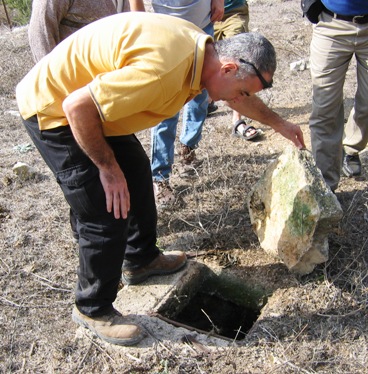
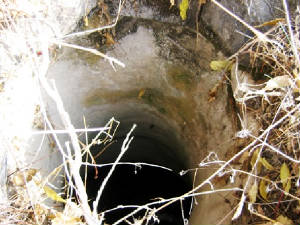
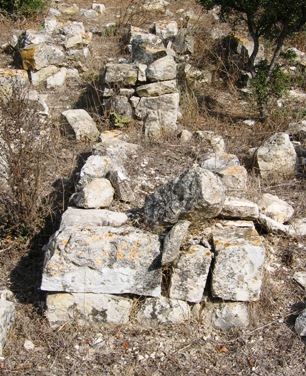
The cemetery [Arabic: Makbarah. Hebrew: Beit Kvaroth].
Name bearing stone plates were removed. Some of then were found in pavements of neighbouring Jewish settlements. Maintenance
is forbidden.
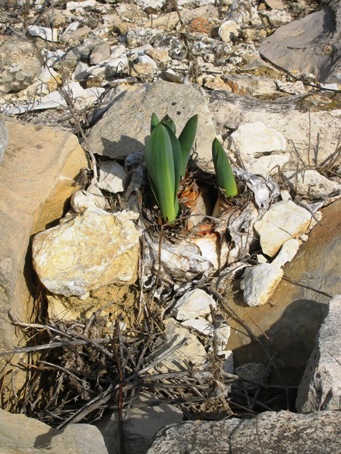
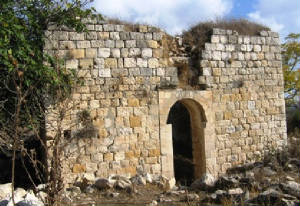
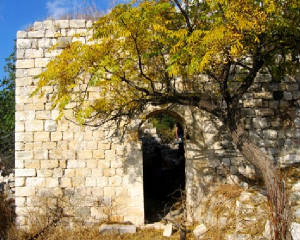
The church [Arabic: Knisi. Hebrew: Knesiya]. The only building not destroyed to the ground.
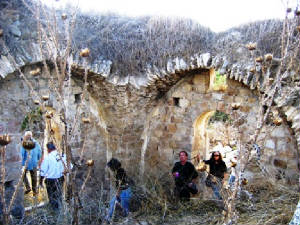
| Vajiah Sam'an |
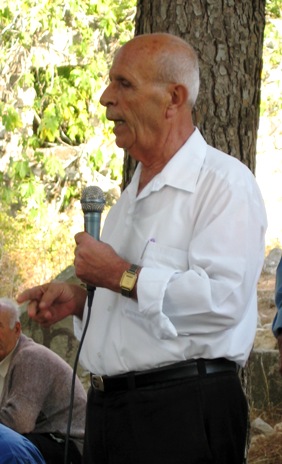
|
| Chairman of the Sons of Suhmata Association |
"Your presence here is the light of justice that will shine in days to come."
| Vaquim Vaquim |
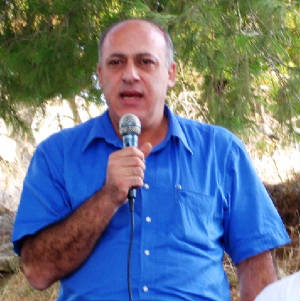
|
| Chairman of the Rights of the Displaced Committee |
"Your presence here is an expression of a Jewish-Arab partnership, not only for our sake but for yours as well. Admitting
the historical injustice is the first step towards genuine peace."
| Marwan Makhoul, reading one of his poems |
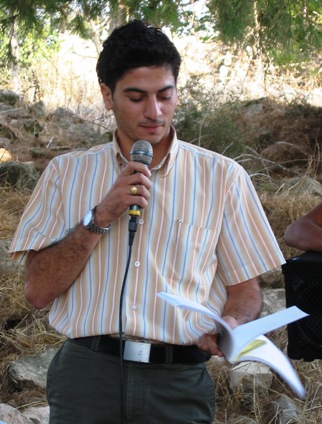
|
| Hebrew translation of Marwan's poem |
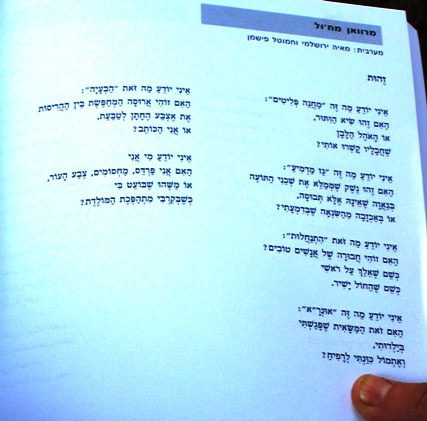
|
| Iris Bar |
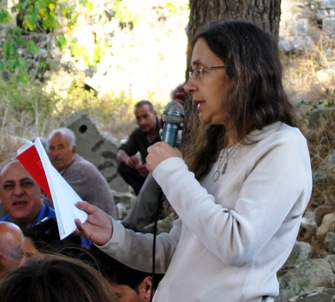
|
| Reading the Hebrew translation of Marwan's poem |
| Roi, on behalf of Zochrot, Haifa. |
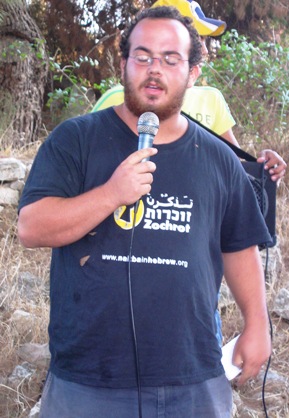
|
| Issam Makhoul, MK (Member of the Knesset) |
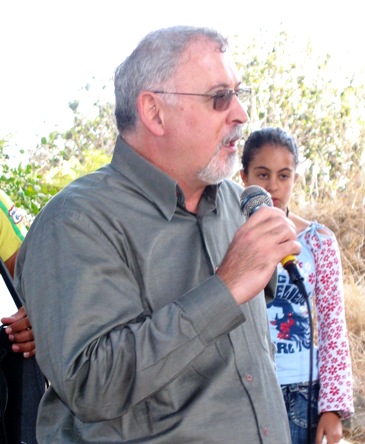
|
"What hypocricy: sparing the church! There is no sacredness in a church without people. Let the internally displaced
people of Suhmata, who are part of the "Israeli demography", rebuild their village. The clash is between the insistance
to erase the past and the desire to keep it on the agenda, so that justice is restored."
| Mish'al Khirurg |
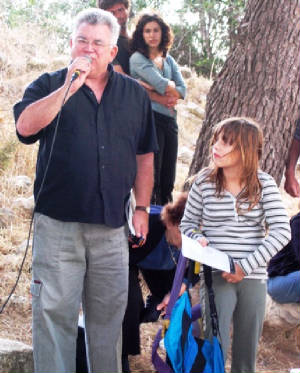
|
| Neighbour and friend, from Ma'alot |
| Fauzi Mussah, with daughter Rim and son Adi |
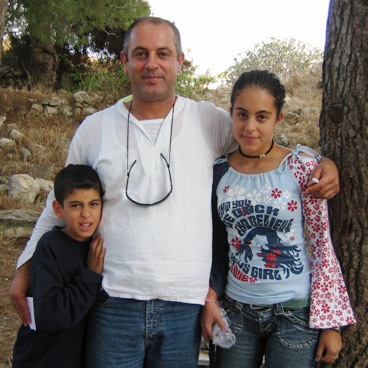
|
| Our host and guide. Thank you, Fauzi. |
"Our wish is to revive the village and live in peace with all our neighbours.
Since the nakba we are split. Our body is here, but our soul remains in 1948.
They who had not been refugees will not understand it."
| View from the top |
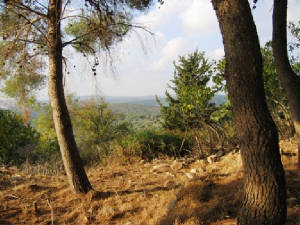
|
| Back to 2005 |
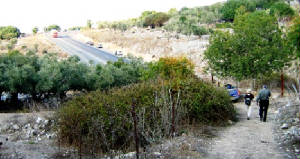
|
Conclusion: What happened in Suhmata at the end of October 1948 was a war crime. The beautiful
hilltop site of Suhmata is empty. Nobody will have to be removed in order to allow the internally displaced people
of Suhmata, now living in Haifa, Tarshiha and elsewhere within Israel, rebuild it, as a model of peace. There will
be ample room for the village residents and their decendents, now living in refugee camps in Lebanon. This act of justice
is overdue. Time will not erase this deep moral debt.
Two people speaking virtually the same language, believing in the same
god (if they do), respecting comparable dietary restrictions [Halal, Kosher], loving
the same beautiful land, sharing (as Emil Habibi put it) the same amount of stupidity, can learn to live together in peace.
|



